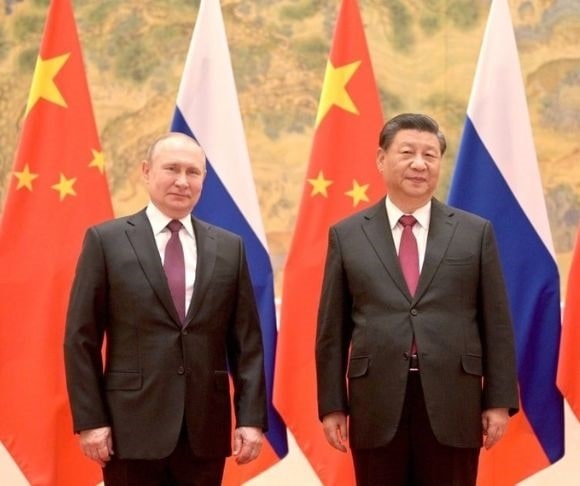President Xi Jinping of China landed in Moscow on March 20 for in-depth discussions with Russian President Vladimir Putin on a host of subjects. As the leader of the People’s Republic of China (PRC) for a third successive five-year term, Xi no doubt believes he will have some sway in the talks. However, Russia also has some currency to spend since the Kremlin provides a significant amount of petroleum and other energy products to the PRC.
China Seeks Stronger Ties with Russia
“The two major powers have described Xi’s three-day trip as an opportunity to deepen their ‘no-limits friendship.’ China looks to Russia as a source of oil and gas for its energy-hungry economy, and as a partner in standing up to what both see as US domination of global affairs,” Associated Press reported. But make no mistake, Xi’s primary purpose is to show support for Russia amid the international condemnation of the Kremlin’s invasion of Ukraine. So, it is a bit tricky for Xi to attempt to burnish the tarnished image of Putin while not getting any of the Kremlin pariah stench on the Chinese Communist Party (CCP).
The CCP leader is riding high after his history-making brokering of the Saudi Arabia-Iran agreement to re-establish diplomatic relations. In the eyes of many, China and its negotiating team effected a significant geopolitical coup. The reopening of embassies and exchange of diplomats were accomplished without the participation of the United States, which elevated China to peacemaker status for many non-aligned countries.
Blinken Not Impressed With Meeting
Secretary of State Antony Blinken had some things to say at a press briefing about the Xi visit to Russia. He reiterated that the United States welcomes any effort to achieve a just and durable peace in Ukraine. Furthermore, the plan China offered a few weeks ago has elements the United States can support, such as solving the humanitarian crisis and protecting civilians. “Indeed, the first element calls for upholding the sovereignty, independence, and territorial integrity of all countries,” Blinken said. “Any plan that does not prioritize this critical principle is a stalling tactic at best or is simply seeking to facilitate an unjust outcome.” Blinken raised the issue of international criminal allegations against Russia’s president on charges of crimes against humanity for brutal air and artillery attacks on Ukraine civilians. The US chief diplomat explained:
“That President Xi is traveling to Russia days after the International Criminal Court issued an arrest warrant for President Putin suggests that China feels no responsibility to hold the Kremlin accountable for the atrocities committed in Ukraine and rather than even condemning them it would provide diplomatic cover for Russia to commit those very crimes.”

(Premlin Press Office/Handout/Anadolu Agency via Getty Images)
The first of several meetings between Putin and Xi exceeded four hours and ended with dinner. However, the Biden national security adviser’s team was not confident about the outcome of talks between these major power leaders. “John Kirby, a White House spokesman, told reporters that US officials were not certain that Beijing would provide weapons to Moscow to further its invasion of Ukraine. ‘We’ll see what they come out of this meeting talking about,’” Kirby observed, according to Katie Rogers of The New York Times.
The best outcome would be maintaining the status quo. What the United States does not want is an agreement for the CCP to initiate a resupply program to replace Russia’s losses from its faltering attacks on Ukraine. Biden’s foreign policy team made clear there would be consequences for that. Should that be the case, the United States and NATO would face some tough diplomatic and military decisions.
The views expressed are those of the author and not of any other affiliation.




